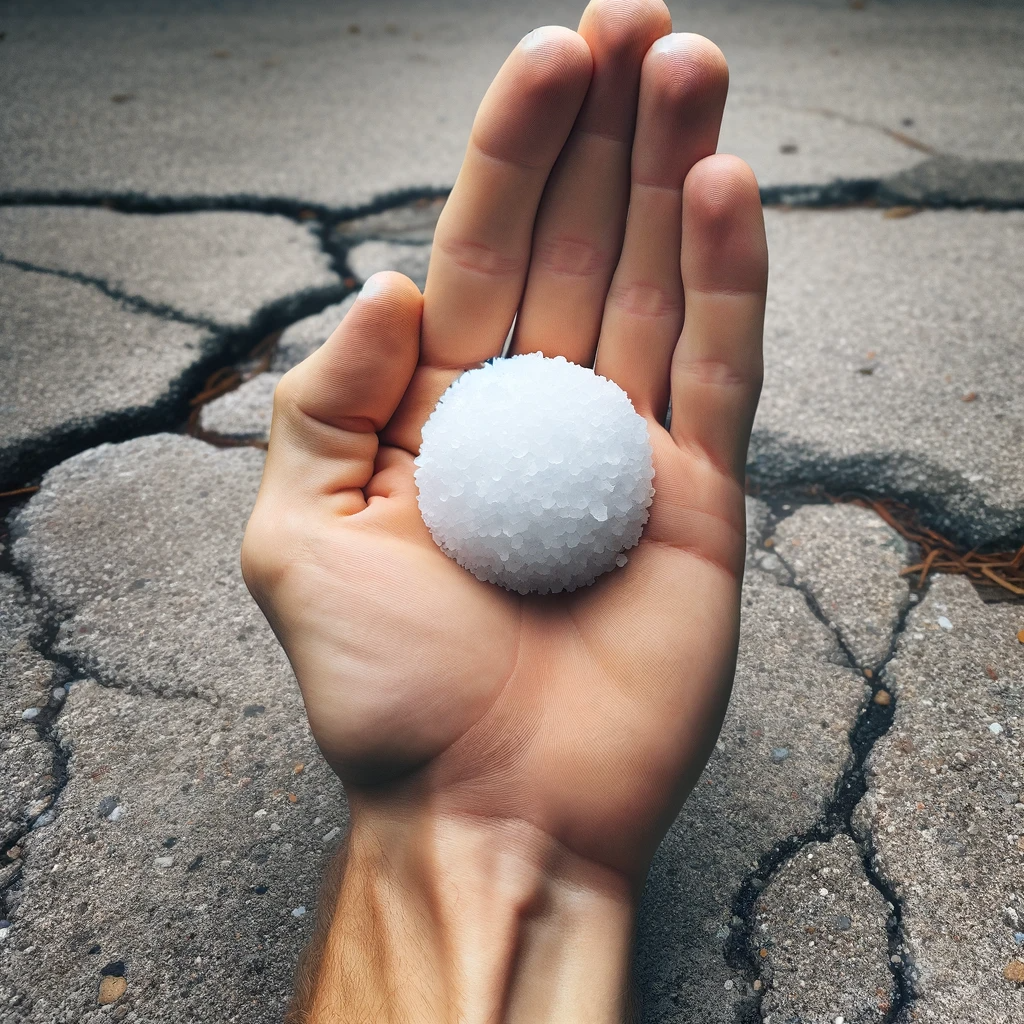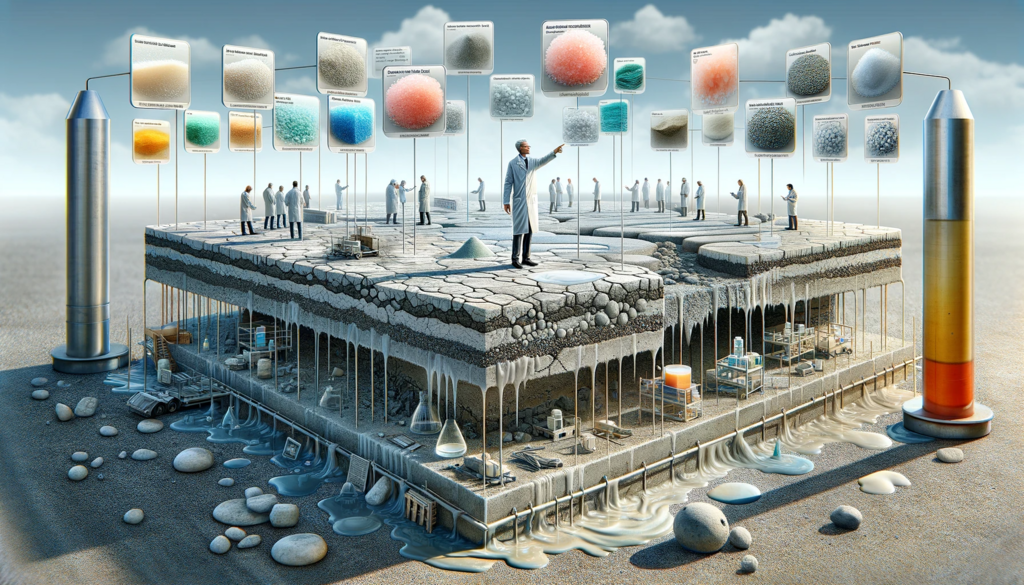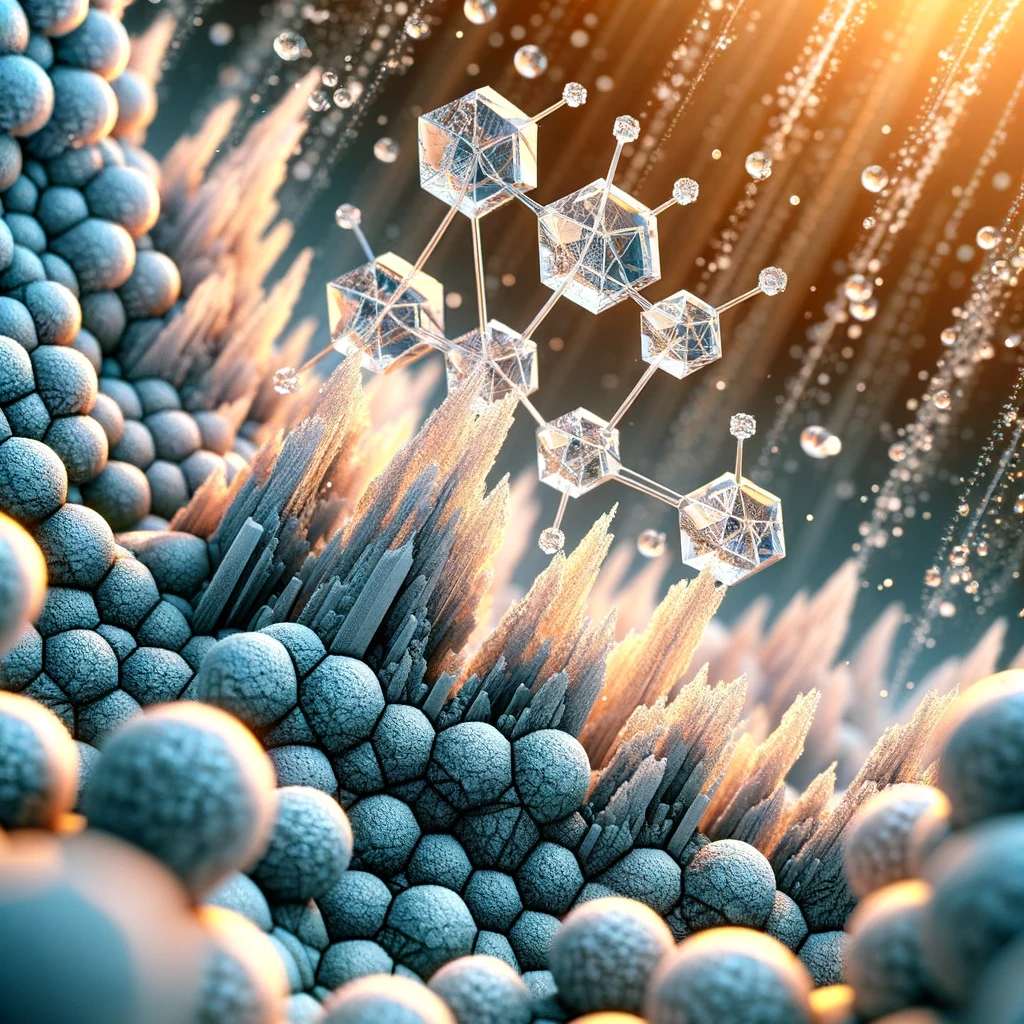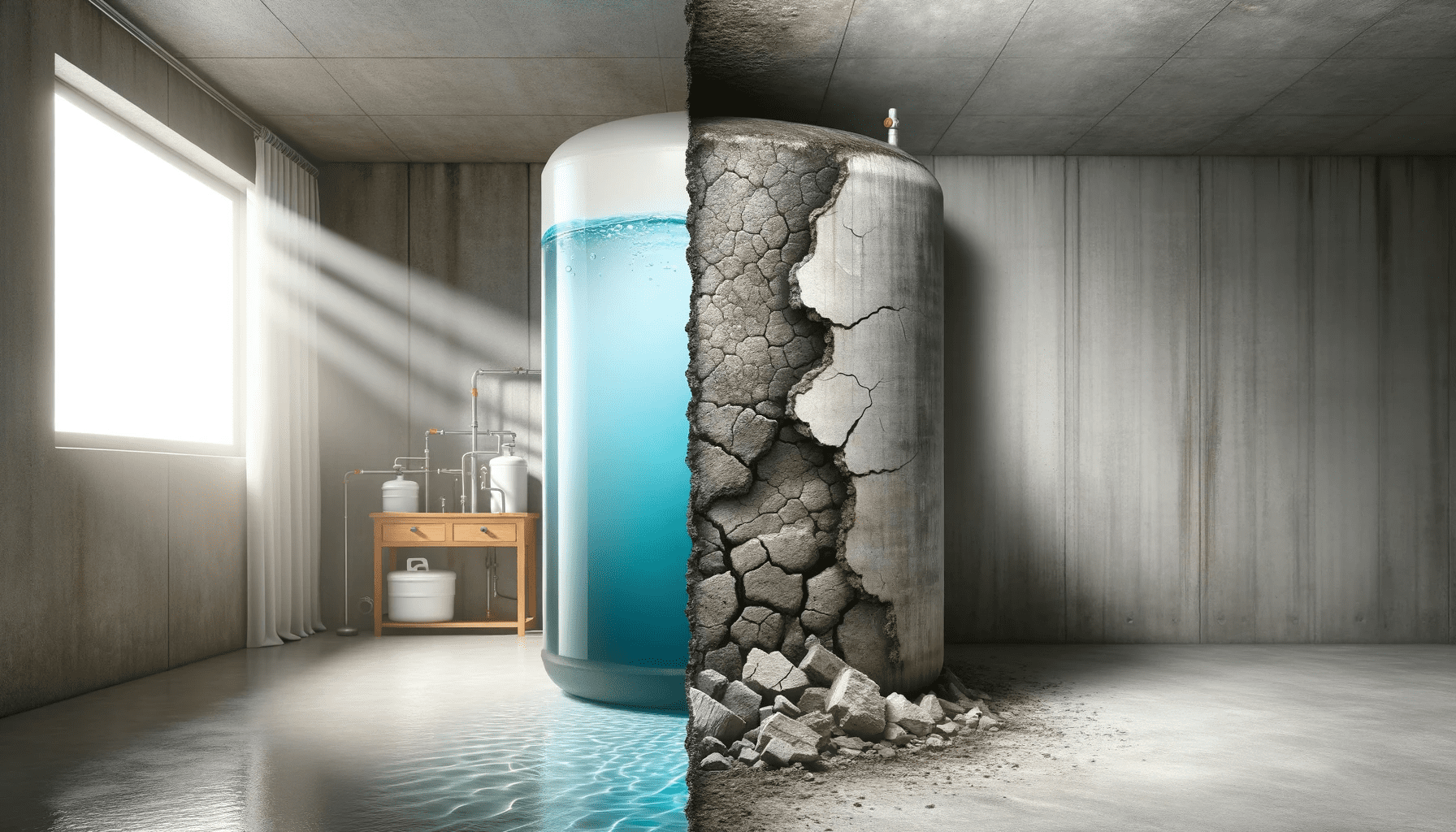Water softener salt can damage concrete due to the high concentration of sodium chloride. In the long run, the salt can cause corrosion and weaken the concrete structure.
Salt And Concrete: Understanding The Damage
Water softener salt can potentially damage concrete surfaces due to its high concentration of minerals. The impact of salt on concrete can weaken its structure over time, leading to cracks and erosion. It is important to understand the potential damage that water softener salt can cause to protect your concrete surfaces.
Different Types Of Salt Used In Water Softeners
Different types of salt are commonly used in water softeners, including sodium chloride, potassium chloride, and rock salt. Sodium chloride, also known as table salt, is the most commonly used salt for water softeners due to its affordability and effectiveness. Potassium chloride, on the other hand, is a more environmentally friendly option as it doesn’t contribute to water pollution like sodium chloride does. Rock salt, consisting of large crystals, is another type of salt used in some water softeners, particularly in areas with colder climates.
How Salt Interacts With Concrete At A Molecular Level
At a molecular level, salt can cause damage to concrete surfaces due to several factors. The most significant factor is the porosity of concrete. Concrete is inherently porous, allowing water to penetrate its surface. When salt is present, it dissolves in this water and enters the concrete pores. The freeze-thaw cycle exacerbates the damage caused by salt in concrete.
As water freezes, it expands, leading to an increase in pressure within the concrete. This pressure, combined with the presence of salt, causes the concrete to crack and deteriorate over time. Furthermore, salt increases the corrosion of reinforcing steel bars, which are commonly used in concrete structures for added strength.
When salt reaches these steel bars, it accelerates the corrosion process, compromising the structural integrity of the concrete. The combination of increased porosity, freeze-thaw cycle, and corrosion ultimately leads to significant damage to concrete surfaces when exposed to salt over time.

The Extent Of The Damage
Water softener salt may cause damage to concrete surfaces due to its high sodium content. Several factors influence the extent of salt damage, including the concentration and frequency of application. It is important to consider alternative options to protect concrete structures from potential harm.
Factors Influencing The Severity Of Damage
Several factors play a crucial role in the extent of damage caused by water softener salt on concrete. Understanding these factors can help you assess how severe the damage might be and take the necessary precautions to mitigate it.
Concentration
The concentration of water softener salt used on concrete surfaces directly affects the potential damage. Higher concentrations of salt pose a greater risk to concrete as they increase the corrosive properties of the solution. It’s important to carefully follow the manufacturer’s instructions regarding the recommended concentration to minimize the risk of damage.
Frequency Of Exposure
The frequency with which concrete is exposed to water softener salt can significantly impact its durability. Continuous and prolonged exposure to the salt solution can gradually wear down the surface, leading to cracks and deterioration. It is essential to limit the frequency of exposure to minimize the potential damage to your concrete structures.
Concrete Quality
The age and quality of the concrete also contribute to its vulnerability to water softener salt damage. Older concrete tends to have a weaker surface and may be more susceptible to erosion. Additionally, the quality of the concrete mix and the curing process can impact its resistance to corrosive substances. If the concrete is of poor quality, it may be more prone to damage from water softener salt.
Case Studies Of Concrete Damage Caused By Water Softener Salt
Real-world examples highlight the damaging effects of water softener salt on various concrete surfaces. These case studies serve as cautionary tales, emphasizing the importance of taking preventive measures to avoid similar damage to your concrete structures.
Driveways
Picture a pristine driveway, marred by unsightly cracks and deteriorated patches. This scenario is all too common when water softener salt is regularly used on concrete driveways during harsh winters. The corrosive nature of the salt slowly breaks down the surface, leading to extensive damage over time.
Floors
In commercial settings, warehouse floors and industrial floors are often subjected to water softener salt as a means of preventing ice formation. While this practice may seem effective in the short term, it can cause severe damage to the concrete floors. Over time, the salt weakens the surface, resulting in cracks and a compromised floor.
It is important to note that these case studies underline the potential damage caused by water softener salt. By understanding the extent of such damage, you can make informed decisions to protect and maintain your concrete structures effectively.

Minimizing The Risk
Water softener salt does not typically cause damage to concrete when used in recommended amounts. Proper maintenance and regular cleaning can minimize the risk of any potential negative effects on concrete surfaces. Keep your concrete protected by using water softener salt responsibly.
If you have a water softener system that uses salt, it’s essential to be aware of the potential damage it can cause to your concrete surfaces. Water softener salt contains high levels of sodium, which can weaken and deteriorate concrete over time. However, there are several preventive measures you can take to minimize the risk and protect your concrete.
Preventive Measures To Protect Concrete From Water Softener Salt
There are several steps you can take to protect your concrete from water softener salt damage:
1. Proper drainage: Ensure that your downspouts and gutters are directing water away from your concrete surfaces. Proper drainage prevents excess water with salt from pooling and seeping into the concrete.
2. Leak prevention: Regularly check your water softener system for any leaks or drips. Fixing any leaks promptly will prevent the saltwater from coming into direct contact with your concrete, reducing the risk of damage.
3. Alternative salts: Consider using alternative salts that are less harmful to concrete. Instead of using traditional water softener salt, you can choose potassium chloride as an alternative. While potassium chloride might be pricier than table salt, it is a safer choice for concrete surfaces.
Diy Tips
Here are some practical steps you can take as a homeowner to mitigate the potential damage caused by water softener salt:
1. Rinse affected areas: If you notice any salt buildup on your concrete surfaces, promptly rinse the area with clean water. This will help remove any excess salt and prevent further penetration into the concrete.
2. Regular cleaning: Keep your concrete surfaces clean by regularly sweeping and power washing them. This will help remove any salt residue and prevent it from accumulating and causing long-term damage.
3. Apply a concrete sealer: Consider applying a high-quality concrete sealer to your surfaces. A sealer acts as a protective barrier, preventing water and salt from penetrating the concrete and causing damage.
Product Recommendations
When it comes to choosing salt types or additives that are less harmful to concrete, here are a few product recommendations:
1. Potassium chloride: Add potassium chloride salt to your water softener instead of traditional table salt. Potassium chloride is not only better for the environment but also safer for your concrete surfaces.
2. Concrete-friendly additives: Look for concrete-friendly additives specifically designed to be used with water softeners. These additives help minimize the potential damage caused by salt and can extend the lifespan of your concrete.
By following these preventive measures, implementing practical tips, and using concrete-friendly salt alternatives or additives, you can effectively minimize the risk of water softener salt damage to your concrete surfaces. Take proactive measures to ensure that your concrete remains in good condition and continues to serve you well.

Alternative Solutions
If you are concerned about the potential damage that water softener salt can cause to concrete, don’t worry! There are alternative solutions you can explore to reduce concrete exposure. By disposing of or recycling water softener brine properly and considering other options, you can protect your concrete surfaces.
Options For Disposing Of Or Recycling Water Softener Brine To Reduce Concrete Exposure
When it comes to water softeners, one of the main concerns is the high salt content in the brine that is discharged during the regeneration process. This brine can cause damage to concrete if not properly managed. By exploring alternative options for disposing of or recycling the brine, you can minimize its impact on concrete surfaces.
Here are a few options to consider:
- Use brine for de-icing: Instead of disposing of the brine, you can repurpose it for de-icing purposes during winter months. The high salt content in the brine makes it an effective solution for melting snow and ice on driveways, walkways, and other concrete surfaces.
- Recycle brine for agricultural use: Another option is to recycle the brine for agricultural purposes. The salt in the brine can be beneficial for certain crops when used in moderation. Before considering this option, consult with local agricultural experts to ensure it aligns with best practices and regulations.
- Install a brine reclamation system: A brine reclamation system can help reduce the amount of brine discharged during the regeneration process. This system collects, filters, and reuses the brine multiple times before it needs to be replaced, minimizing the volume of brine that comes into contact with concrete.
- Switch to an alternative water softening method: If you are concerned about the potential damage to concrete, you can consider alternative methods for water softening that do not involve the use of salt. Options such as electronic water descalers or magnetic water softeners can offer effective alternatives.
By exploring these alternative solutions, you can minimize the exposure of concrete to water softener salt and reduce the risk of damage. Remember to consult with professionals and consider specific local regulations to ensure you choose the most suitable option for your needs.
Frequently Asked Questions On Will Water Softener Salt Damage Concrete
Will Water Softener Salt Damage Concrete?
Water softener salt will not damage concrete when used properly. It is safe to use and does not cause any harm to the concrete surface.
How Does Water Softener Salt Affect Concrete?
Water softener salt does not have any negative effects on concrete. It dissolves in water and does not leave any residue or stains on the concrete surface.
Can Water Softener Salt Corrode Concrete?
No, water softener salt does not corrode concrete. It is a safe and effective way to treat hard water without causing any damage to the concrete structure.
What Are The Benefits Of Using Water Softener Salt On Concrete?
Using water softener salt on concrete helps to prevent the buildup of minerals and scale caused by hard water. It ensures the longevity and durability of the concrete surface.
How Often Should Water Softener Salt Be Used On Concrete?
The frequency of using water softener salt on concrete depends on the level of hardness in the water. It is recommended to follow the manufacturer’s instructions for the appropriate usage.
Conclusion
To summarize, water softener salt can potentially damage concrete due to its high sodium levels. Therefore, it is essential to take preventive measures such as using potassium chloride or other salt alternatives. Regular maintenance and proper care can help extend the life of the concrete and avoid costly repairs.
Ultimately, the choice of water softener salt should be thoughtfully considered to protect both the concrete and the environment.


Leave a Reply